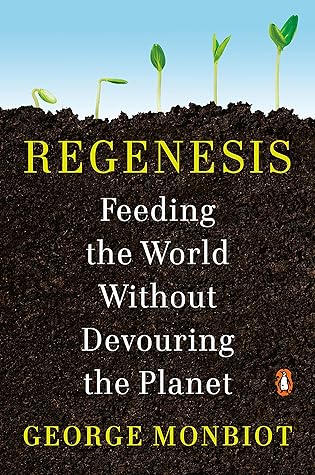More on this book
Community
Kindle Notes & Highlights
Read between
January 21 - July 21, 2023
in the last few years agricultural scientists have discovered that plants seem to be less capable of fighting off attacks by certain pathogens when they grow in damaged soils with a low diversity of microbes.[47] Where the soil has been harmed by too much fertilizer, by pesticides or fungicides, excessive plowing or crushing by heavy machinery, their cry for help is more likely to be exploited by parasites and pests. In both cases a dysbiosis is caused.
An interesting line of research suggests that soils with a rich and well-balanced microbiome suppress pathogenic bacteria that cause disease in people,[50] making the transmission of human diseases through food less likely.
The biggest population crisis is not the growth in human numbers, but the growth in livestock numbers.
Farm waste—especially from livestock farms—has in many wealthy countries become the biggest cause of water pollution.
Around 75 percent of the antibiotics sold in the European Union and the U.S. are used for treating not human beings but farm animals.
One estimate suggests that 58 percent of the antibiotics given to farm animals are excreted.[44] Some of the drugs break down quickly, others persist for hundreds or even thousands of days.[45] When manure is stored, the bacteria it contains face powerful selective pressures to resist the excreted antibiotics.
Raising a kilogram of beef protein releases 113 times more greenhouse gases than growing a kilogram of pea protein, and 190 times more than a kilogram of nut protein.
Switching from a diet that’s high in meat to one entirely based on plants would cut the greenhouse gases from your food by 60 percent.
Just over one-third of the world’s greenhouse gas emissions are produced by the food system.
One estimate suggests that perennial systems hold five times as much of the water that falls on the ground as annual crops do.
One study shows that, when flowering crops (such as beans or most kinds of oilseed) are grown, the net impact of pesticides on farmers’ yields and profits is negative, as the harm inflicted by killing pollinators outweighs the benefits of killing pests.[142] Big Farmer has been conned by Big Pharma.
A study of a rewilding project in the Netherlands found that it employs six times as many workers as the dairy farms it replaced, as small businesses have proliferated to serve the people coming to watch the abundant wildlife now living there.[71] An analysis of twenty rewilding projects in England by Rewilding Britain discovered that they created, on average, a 47 percent increase in full-time equivalent jobs.[72]


